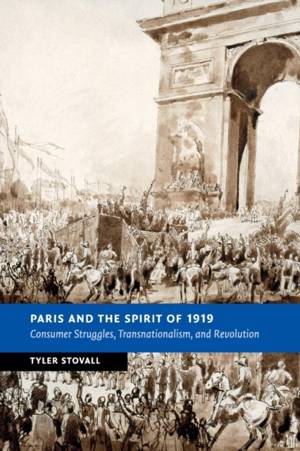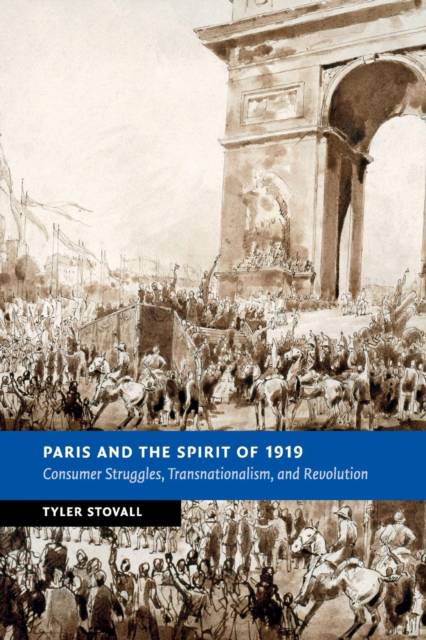
Door een staking bij bpost kan je online bestelling op dit moment iets langer onderweg zijn dan voorzien. Dringend iets nodig? Onze winkels ontvangen jou met open armen!
- Afhalen na 1 uur in een winkel met voorraad
- Gratis thuislevering in België vanaf € 30
- Ruim aanbod met 7 miljoen producten
Door een staking bij bpost kan je online bestelling op dit moment iets langer onderweg zijn dan voorzien. Dringend iets nodig? Onze winkels ontvangen jou met open armen!
- Afhalen na 1 uur in een winkel met voorraad
- Gratis thuislevering in België vanaf € 30
- Ruim aanbod met 7 miljoen producten
Zoeken
€ 50,45
+ 100 punten
Uitvoering
Omschrijving
This transnational history of Paris in 1919 explores the global implications of the revolutionary crisis of French society at the end of World War I. As the site of the Peace Conference, Paris was a victorious capital and a city at the centre of the world, and Tyler Stovall explores these intersections of globalisation and local revolution. The book takes as its central point the eruption of political activism in 1919, using the events of that year to illustrate broader tensions in working class, race and gender politics in Parisian, French and ultimately global society which fuelled debates about colonial subjects and the empire. Viewing consumerism and consumer politics as key both to the revolutionary crisis and to new ideas about working class identity, and arguing against the idea that consumerism depoliticised working people, this history of local labor movements is a study in the making of the modern world.
Specificaties
Betrokkenen
- Auteur(s):
- Uitgeverij:
Inhoud
- Aantal bladzijden:
- 356
- Taal:
- Engels
- Reeks:
Eigenschappen
- Productcode (EAN):
- 9781107521230
- Verschijningsdatum:
- 14/05/2015
- Uitvoering:
- Paperback
- Formaat:
- Trade paperback (VS)
- Afmetingen:
- 152 mm x 229 mm
- Gewicht:
- 476 g

Alleen bij Standaard Boekhandel
+ 100 punten op je klantenkaart van Standaard Boekhandel
Beoordelingen
We publiceren alleen reviews die voldoen aan de voorwaarden voor reviews. Bekijk onze voorwaarden voor reviews.











